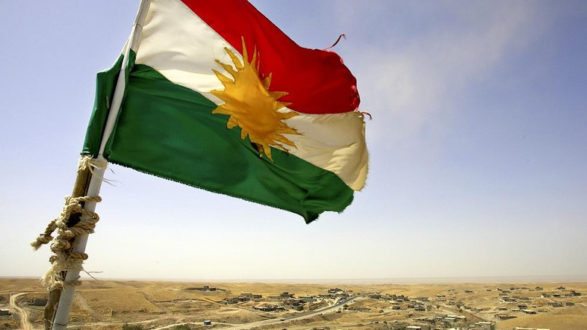Al-Monitor – The independence referendum in Iraqi Kurdistan is a hot issue in the Iranian press, with ongoing coverage of the vote and its aftermath. Along with the Iranian government, most media outlets are reacting negatively to the plebiscite, worried that such demands will spill into the Kurdish part of Iran.

Hard-line Kayhan daily, whose editor-in-chief, Hossein Shariatmadari, is appointed by Supreme Leader Ayatollah Ali Khamenei, opined that Western powers and Israel were behind the referendum “plot” to destabilize the Middle East. “The Zionists and the leaders of the Israeli regime, who voiced their concern over the elimination of takfiris and Daesh [Islamic State (IS)] from the regional equations during recent weeks and months, have been deeply excited about a referendum being conducted in the Kurdistan Region of Iraq,” Shariatmadari wrote in a news report in Kayhan on Sept. 26.
The report continued, “[Kurdistan Region President Massoud] Barzani, as he himself says, seeks to establish an independent state in Iraq based on Kurdish ethnicity by holding a referendum. If Barzani’s policy in the entire region of West Asia becomes a [common] course of action, it will have dangerous [consequences].”
Noting the United States’ and the West’s opposition to the referendum, Kayhan added, “It should not be ignored that Washington and Western governments’ opposition [to the vote] is limited to the timing of the referendum, and they have no problem with the referendum itself.”
Furthermore, Ali Akbar Velayati, a former foreign minister who now serves as foreign policy adviser to Khamenei, described Barzani as a fixer working for “Zionists” bent on causing the disintegration of Muslim states. “Barzani, unfortunately, has long been connected with the Zionists. … Barzani’s connection to the Israelis is the beginning of his political fallout,” said Velayati on Sept. 26. He added, “The people of Iran and the region do not stand silent against this move and this deviation. Barzani will have to retreat; otherwise, he will be confronted.”
Heshmatollah Falhat-Pishe, a Kurdish member of the Iranian parliament, argued that the referendum would lead to a serious conflict between peshmerga forces and Iraqi security forces, including the Popular Mobilization Units, amid the possibility of new action by IS forces who are still in Iraq — including the Kurdish parts of the country.
Falhat-Pishe wrote in the state-run Iran daily on Sept. 26, “Despite the wrong position and actions of the [Iraqi] Kurdish authorities, regional countries such as Iran, Turkey and Iraq should use their political wisdom to control the situation after the referendum. The region now needs serious and continued talks with Kurdish parties as well as between the influential powers of the region and even the world.”
Referring to the continued presence of IS forces in some parts of Iraq and the preceding talks between Iraqi Kurdish officials with their Iranian counterparts, parliamentary speaker Ali Larijani said on Sept. 26, “When various groups from the [Iraqi] Kurdish region came to Iran, we explicitly told them that this [referendum] would create new tensions in Iraq, because the terrorism [issue] is still unresolved while you are creating a new crisis. We said that your issues should be addressed through political talks and no crisis should be created due to these issues.”
He emphasized, “We do not support the breakup of Iraq and other countries in the region by any means.”
Meanwhile, an op-ed in the Reformist Shargh daily written by history professor Nemat Ahmadi opined that the Kurdistan referendum is not a new plan launched by Barzani but in fact has roots dating back to 1916 when Britain and France reached the Sykes-Picot Agreement, a secret deal that formed the borders of much of the modern Middle East but didn’t pay any attention to language, culture and religion.
“Whether we want it or not, the referendum has been held. A country in the midst of the mountains, surrounded by [other] countries, with no free land, air and naval borders will be established,” argued Ahmadi in the Sept. 26 op-ed.
Mentioning a weather map on Iraqi Kurdish TV that counted the Kurdish parts of Iran as belonging to the Kurdistan Region, the historian remarked, “It is enough to see the weather map from Iraqi Kurdistan’s TV; that is the beginning of a dispute! We have to think about the day after the referendum. You can no longer study the Kurdish issue after the referendum like before.”
 Shabtabnews In this dark night, I have lost my way – Arise from a corner, oh you the star of guidance.
Shabtabnews In this dark night, I have lost my way – Arise from a corner, oh you the star of guidance.



